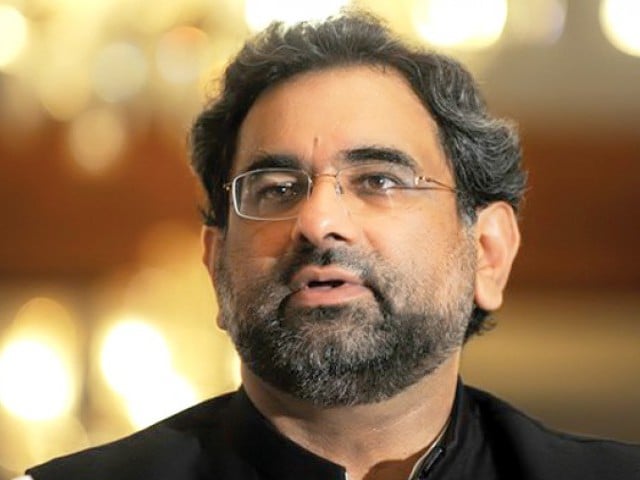DERA ISMAIL KHAN:
Former prime minister Shahid Khaqan Abbasi has said that dialogue with Afghanistan was not within the purview of the Khyber-Pakhtunkhwa government, asserting that foreign relations were the exclusive domain of the state.
He warned that direct intervention by provincial authorities could complicate rather than resolve sensitive issues.
Speaking during a visit to Dera Ismail Khan, the former premier stressed that international diplomacy must always be conducted at the state level. “This is a matter for the federation, not the provinces,” he added.
Abbasi painted a grim picture of the country’s current state, noting there were economic, political and security crises, adding that the only viable path forward lies in democratic continuity and political stability.
“We are not part of any protest movement at this stage,” he clarified, referring to the opposition’s current stance. “Our primary objective is to bring all opposition parties onto a single platform.”
He admitted that just like the government, the opposition, too, has remained fragmented over the past year. “Without a united opposition, no meaningful political movement can take shape,” Abbasi said.
He added that consultations with various parties were underway to overcome internal divisions and foster collective political thought.
His statement comes as the opposition’s push to shake up the political landscape is picking up steam. However, without JUI-F’s street muscle, the alliance is reportedly left grasping for a united front.
Despite multiple rounds of talks, JUI-F chief Maulana Fazlur Rehman remains noncommittal, citing concerns over PTI’s leadership structure in the absence of jailed ex-premier Imran Khan.
As reported earlier, the Maulana has sought clear assurances on decision-making authority before backing the opposition movement.
Earlier on Friday, Shahid Khaqan Abbasi and senior politician Mehtab Abbasi visited the residence of Jamiat Ulema-e-Islam (JUI-F) chief Maulana Fazlur Rehman.
The meeting, held in a cordial atmosphere, was primarily to extend Eid greetings to the veteran religious and political leader.
During the visit, the leaders engaged in a discussion on the prevailing national political situation. The conversation reportedly touched upon key challenges facing the country and the role of opposition parties in the current landscape.
Responding to a question on electricity prices, Abbasi, speaking in DI Khan, also dismissed the notion that the recent price drop reflected improved government performance.
“The decline in power tariffs is purely due to falling global petroleum prices, not local governance,” he said. “What’s needed is a sustainable and long-term energy policy.”

